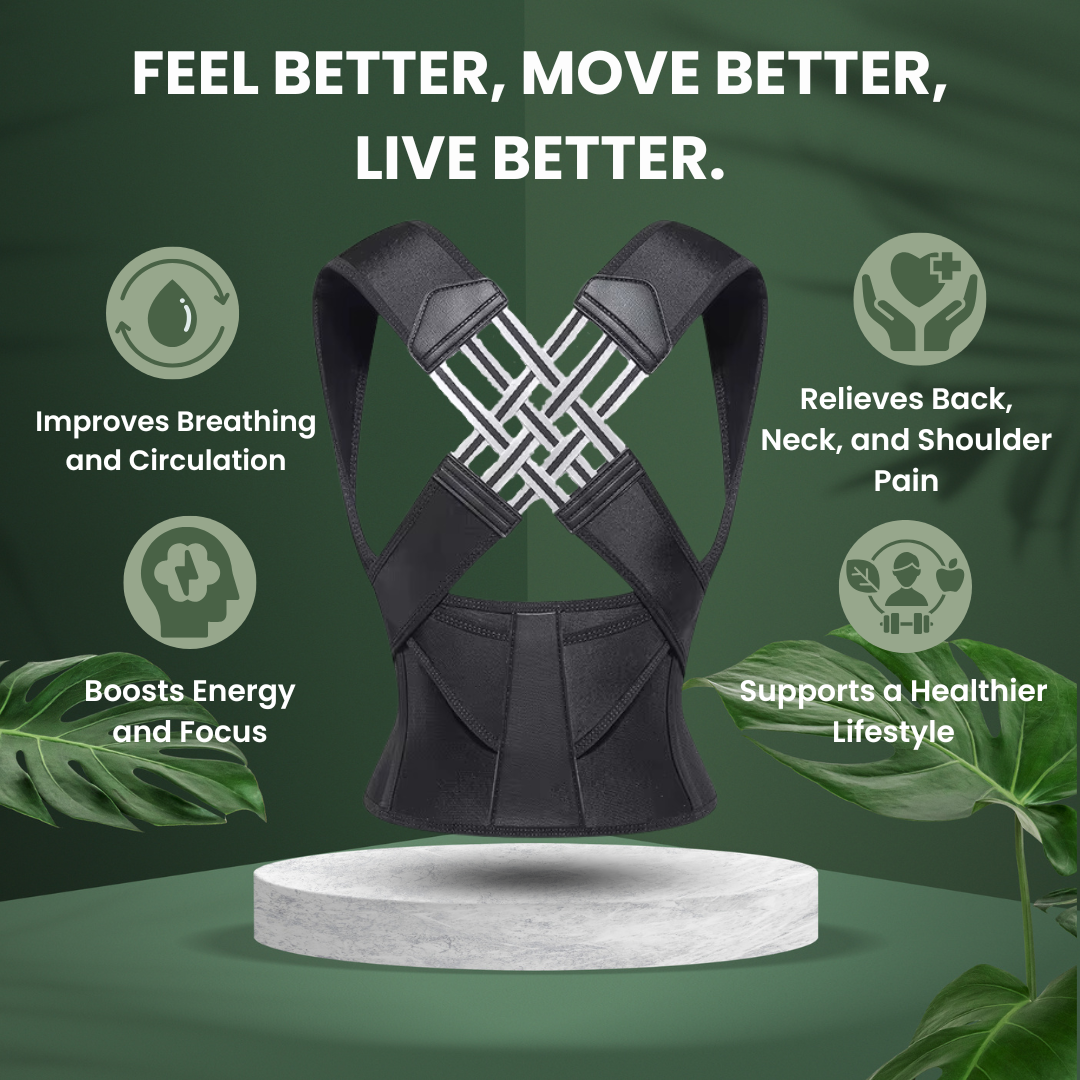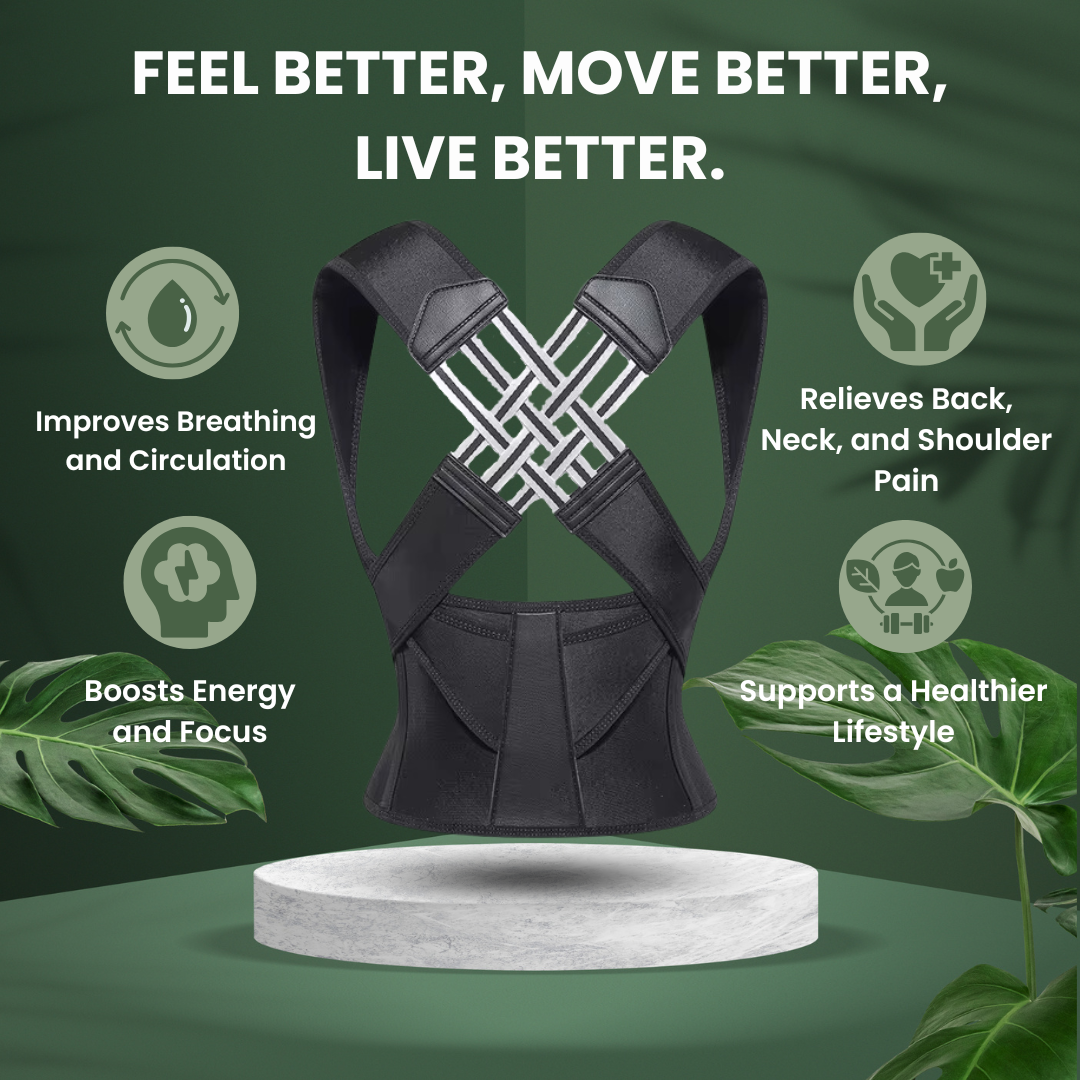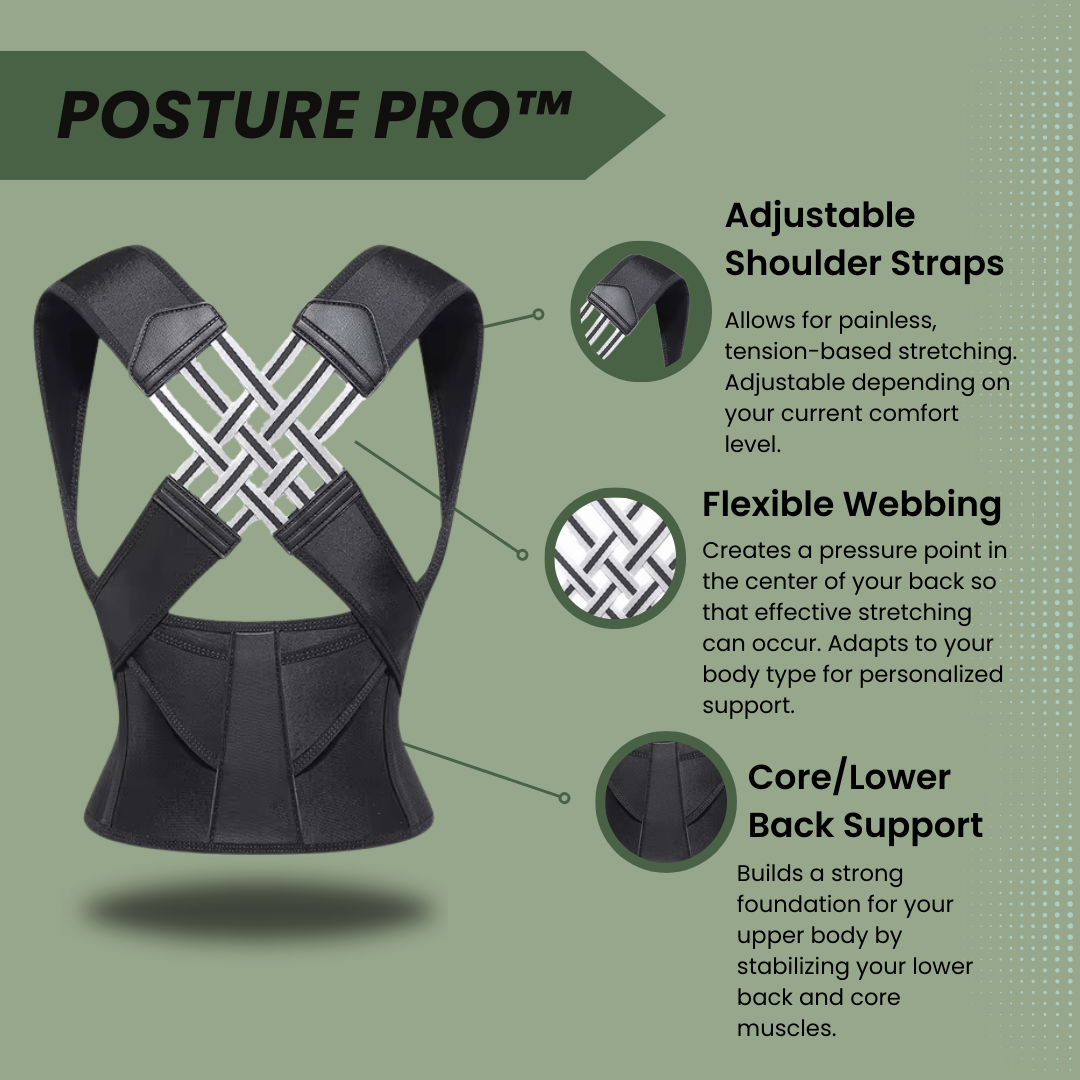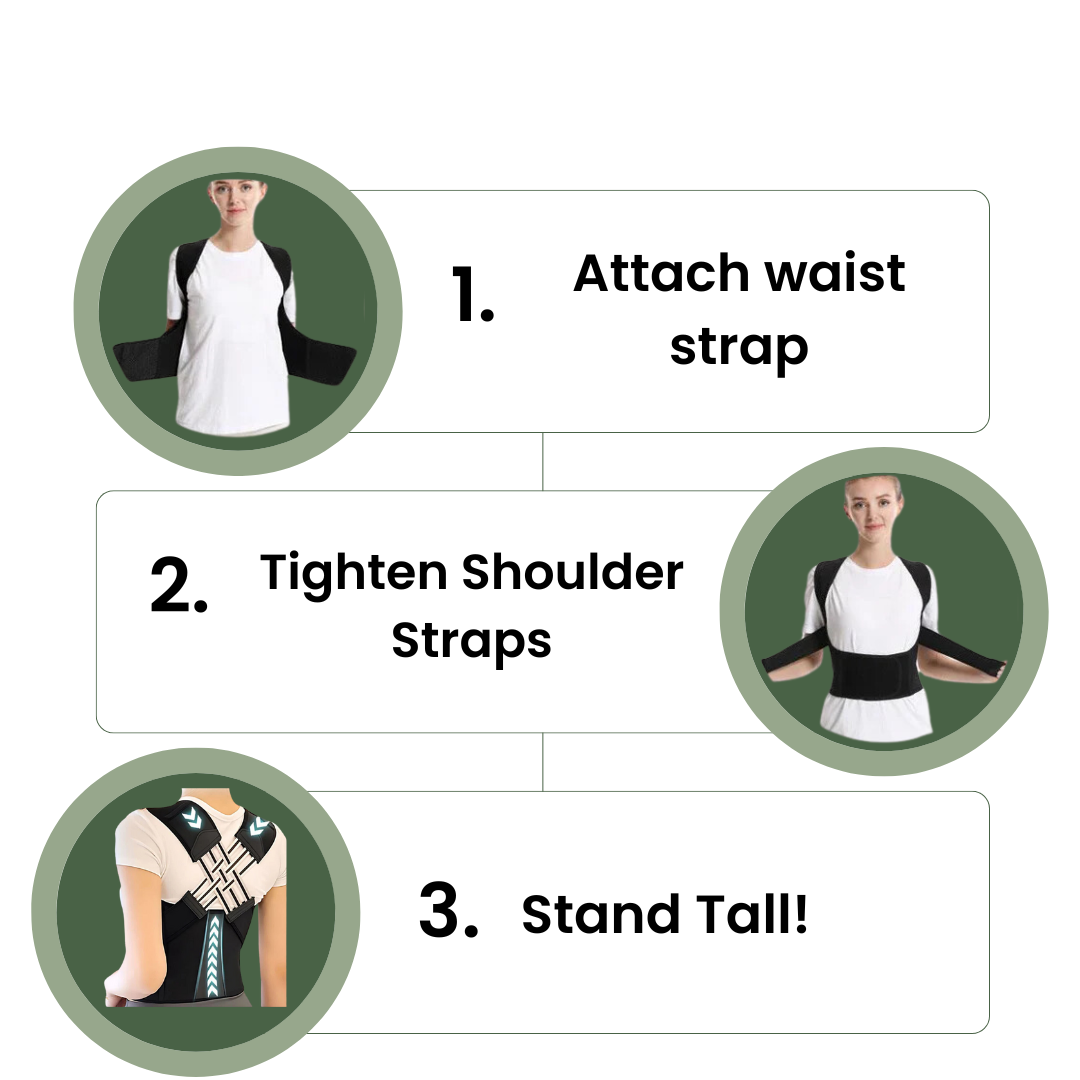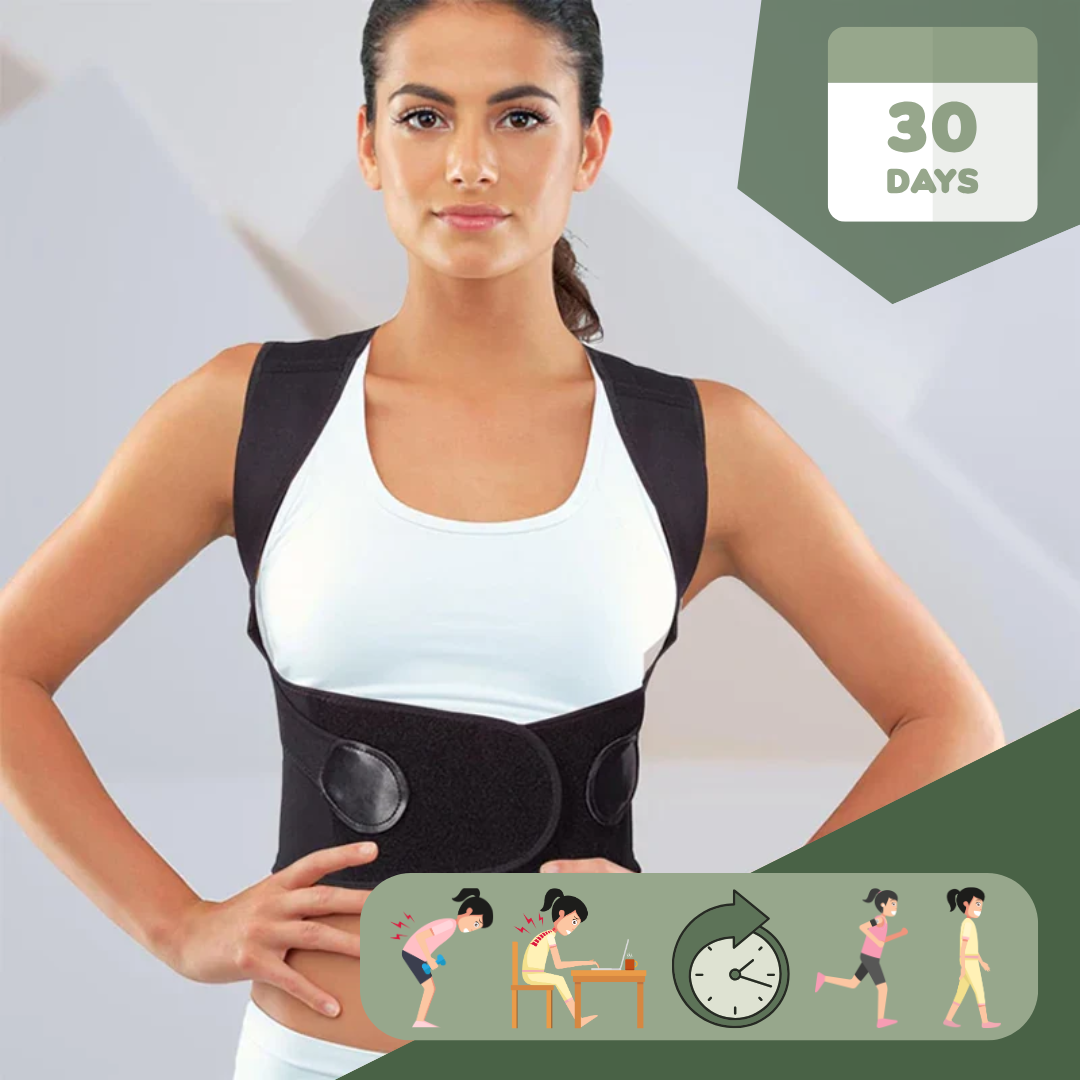Many people do not realize how posture affects mental health and confidence. Harvard University discovered that sitting up straight can make you feel less anxious and more confident.
This blog post explores the surprising connection between body position and well-being. Read on to learn how to boost your mood and self-esteem through simple changes in posture.
Key Takeaways
- Sitting up straight improves mood and reduces anxiety, stress, and depression. Harvard University found that an upright posture boosts confidence.
- Poor posture can lead to feelings of sadness or fatigue and is linked with symptoms of depression and anxiety. Good posture promotes positive emotions and thoughts.
- Regular exercise, stretching, using ergonomic furniture, and mirror exposure help improve posture. These practices boost mental well-being by encouraging a more powerful feeling.
- Therapy supports overcoming negative thought patterns related to poor posture. Engaging in therapies improves self-esteem alongside adopting good body position habits.
- The mind-body connection shows physical health impacts mental well-being directly. Maintaining good posture sends positive signals to the brain about confidence and overall health.
The Relationship Between Posture and Mental Health
Posture significantly influences mental health. Good posture can enhance your mood and overall well-being.
The link between body position and well-being
Body position significantly impacts well-being. Harvard University found that sitting up straight can improve symptoms of anxiety, stress, and depression. An upright posture immediately boosts mood and enhances feelings of confidence.
Slumped posture often shows depressive symptoms and conveys sadness or fatigue. Good posture not only improves self-esteem but also encourages positive emotions and thoughts. This connection between physical health and mental well-being plays a crucial role in daily life.
Maintaining good posture leads to better overall health outcomes for individuals facing mental health challenges like anxiety or depression.
The importance of good posture
Good posture plays a vital role in mental health and confidence. Sitting up straight can lessen anxiety, stress, and depression, as Harvard University found. An upright position can lift your mood almost instantly.
People often misinterpret slouched posture as a sign of sadness or fatigue. This connection between body position and emotional state is significant.
Maintaining good posture boosts self-esteem and energy levels. Individuals with good posture tend to feel more powerful, which enhances their attitude and overall mood. Poor posture increases the risk of experiencing symptoms linked to depression and anxiety.
The mind-body connection shows that how we carry ourselves impacts our psychological well-being directly.
The Effects of Posture on Mental Health
Good posture boosts your energy levels and helps you concentrate better. Sitting or standing tall can enhance your confidence and lift your mood, allowing for a more positive outlook on life.
Increased energy and focus
Upright posture boosts energy and focus. Harvard University found that sitting up straight improves symptoms of anxiety, stress, and depression. This change in body position tells the brain you feel powerful, which positively affects your mood.
Studies show an upright posture can enhance concentration significantly. People who maintain good posture experience increased alertness throughout the day. Improved self-esteem often accompanies this boost in energy levels.
In turn, a more energetic mindset promotes better mental well-being and resilience against stress responses.
Improved confidence and mood
Good posture plays a crucial role in boosting confidence and mood. Straightening up can signal to the brain that you are powerful. This simple change can lead to immediate improvements in your mood.
Studies show that an upright posture enhances feelings of well-being. People who maintain good posture often experience increased self-esteem and emotional health.
On the other hand, slouched posture is linked with depressive symptoms. Individuals who sit or stand with poor alignment tend to feel more anxious and stressed. Maintaining good body position not only strengthens mental resilience but also encourages positive thoughts and emotions.
By focusing on our body language, we can improve our psychological well-being significantly.
Reduced stress and anxiety
Poor posture increases stress and anxiety. Slumped positions often lead to feelings of sadness and fatigue. In contrast, sitting up straight helps improve mood immediately. Harvard University found that maintaining good posture can reduce symptoms of anxiety, stress, and depression.
Straightened bodies send powerful signals to the brain. These signals promote positive emotions and thoughts. Improved posture also boosts confidence and self-esteem. By adopting better body positions, individuals can manage their mental well-being more effectively.
Promoting positive emotions and thoughts
Good posture plays a key role in promoting positive emotions and thoughts. Sitting or standing upright can immediately boost your mood, making you feel more confident. Research shows that an upright posture signals to the brain that you are powerful.
This strong message can directly impact your attitude and emotional state.
People with poor posture often face increased symptoms of depression and anxiety. In contrast, maintaining good posture improves overall health and well-being. By focusing on body position, individuals can elevate their self-esteem and foster a more positive mindset.
Tips for Improving Posture and Maintaining Good Mental Health
You can enhance your posture by using mirrors to check your stance. Regular exercise and stretching also support healthy alignment. Choose ergonomic furniture to encourage better sitting positions.
These strategies promote good mental health and boost overall well-being. Discover more ways to improve your posture and mindset as you read on!
The role of mirror exposure
Mirror exposure plays a significant role in improving posture and mental health. It helps individuals become aware of their body position. Seeing themselves in a mirror can prompt them to stand upright instead of slouching.
An upright posture signals the brain that they are powerful, which boosts mood and confidence. Studies show that good posture can lead to better self-esteem and overall psychological well-being.
Using mirrors regularly encourages positive self-image changes. Individuals with poor posture often experience higher levels of anxiety and depression. Encouraging good stance through mirror visibility promotes awareness and supports stress management efforts.
Embracing this practice enhances both physical presence and mental wellbeing effectively.
Regular exercise and stretching
Regular exercise and stretching play a crucial role in improving posture. They strengthen the muscles that support your spine. Strong muscles help maintain an upright position. Good posture boosts your mood and confidence, which enhances self-esteem.
Studies show that upright posture can improve mood instantly. Engaging in physical activity also reduces stress and anxiety. Individuals with poor posture tend to experience more symptoms of depression.
Stretching helps relieve tension from slumped positions, promoting positive emotions and thoughts.
Incorporating regular movement into your daily routine benefits both body and mind. Simple activities like walking or yoga improve flexibility and balance. These actions enhance overall health and well-being while supporting the mind-body connection vital for psychological wellness.
Maintaining good posture through exercise lets your brain feel powerful, affecting attitude positively as well as mental health directly.
Using ergonomic furniture
Using ergonomic furniture can greatly help improve posture. Good chairs and desks support the body in a natural way. These adjustments can lead to better mental health and confidence.
Harvard University found that sitting up straight improves anxiety, stress, and depression symptoms. People who use ergonomic furniture report feeling more energetic and focused throughout the day.
Poor posture has links to depressive symptoms. Slumped positions may promote feelings of sadness or fatigue. In contrast, an upright posture often indicates well-being. This connection between physical position and state of mind highlights how body language affects self-image.
Choosing the right furniture is essential for overall health and psychological well-being.
Seeking Professional Treatment for Mental Health Disorders
Many individuals find therapy helpful for their mental health struggles. Support from a professional can help people challenge negative thoughts and strengthen their self-esteem.
The benefits of therapy and support
Therapy and support significantly enhance mental health. They help individuals overcome negative thought patterns. Harvard University found that proper therapy combined with good posture can improve symptoms of anxiety, stress, and depression.
Engaging in these therapies also promotes self-esteem.
Support groups offer a space to share feelings. This connection fosters a sense of belonging and reduces feelings of isolation. Individuals with poor posture often experience depressive symptoms.
Therapy helps address these issues while encouraging better body position, leading to improved confidence and psychological well-being.
Overcoming negative thought patterns
Negative thought patterns can cloud our minds. These thoughts often lead to feelings of sadness or anxiety. Poor posture contributes to these negative feelings. Slouching signals the brain that we are feeling down, while good posture boosts our mood and confidence.
Studies show that sitting up straight can improve symptoms of anxiety, stress, and depression. An upright posture helps us feel powerful. This feeling can change our attitude for the better.
Good body position promotes positive emotions and thoughts, improving self-esteem and psychological well-being. By focusing on how we hold ourselves, we can overcome negativity and enhance mental health significantly.
The connection between physical and mental health
Physical health and mental health share a strong connection. Good posture can significantly enhance both areas. Harvard University found that sitting up straight improves symptoms of anxiety, stress, and depression.
People who maintain an upright posture often feel more powerful. This body position sends positive signals to the brain about confidence and well-being.
On the other hand, slumped posture correlates with depressive symptoms. Individuals with poor posture face higher risks of experiencing anxiety and sadness. Straightening up not only boosts mood immediately but also leads to improved self-esteem over time.
The mind-body connection underscores how physical state affects psychological well-being directly, showing just how crucial maintaining good posture truly is for overall health.
Conclusion
Posture plays a vital role in mental health and confidence. Sitting up straight can lift your mood and reduce anxiety. Good posture sends powerful signals to your brain. It promotes feelings of strength and positivity.
Improving posture leads to better overall well-being.
FAQs
1. How does posture affect mental health and confidence?
Posture can have a surprising connection to your psychological well-being. A good body position can boost self-esteem, improve self-image, and contribute positively to overall mental health.
2. What is the mind-body connection in terms of posture?
The mind-body connection refers to how our physical state, such as body position, influences our psychological wellbeing. For example, maintaining an upright posture can enhance feelings of arousal and increase self-esteem.
3. Can improving my posture boost my self-esteem?
Yes! There's a strong link between body position and self-esteem. Adopting a confident stance not only improves your physical appearance but also positively impacts your self-image and boosts your confidence.
4. How does good posture contribute to psychological wellbeing?
Good posture doesn't just benefit the body; it also plays a vital role in psychological wellbeing by increasing arousal levels, enhancing one's self-image, boosting confidence levels and contributing to overall mental health.



